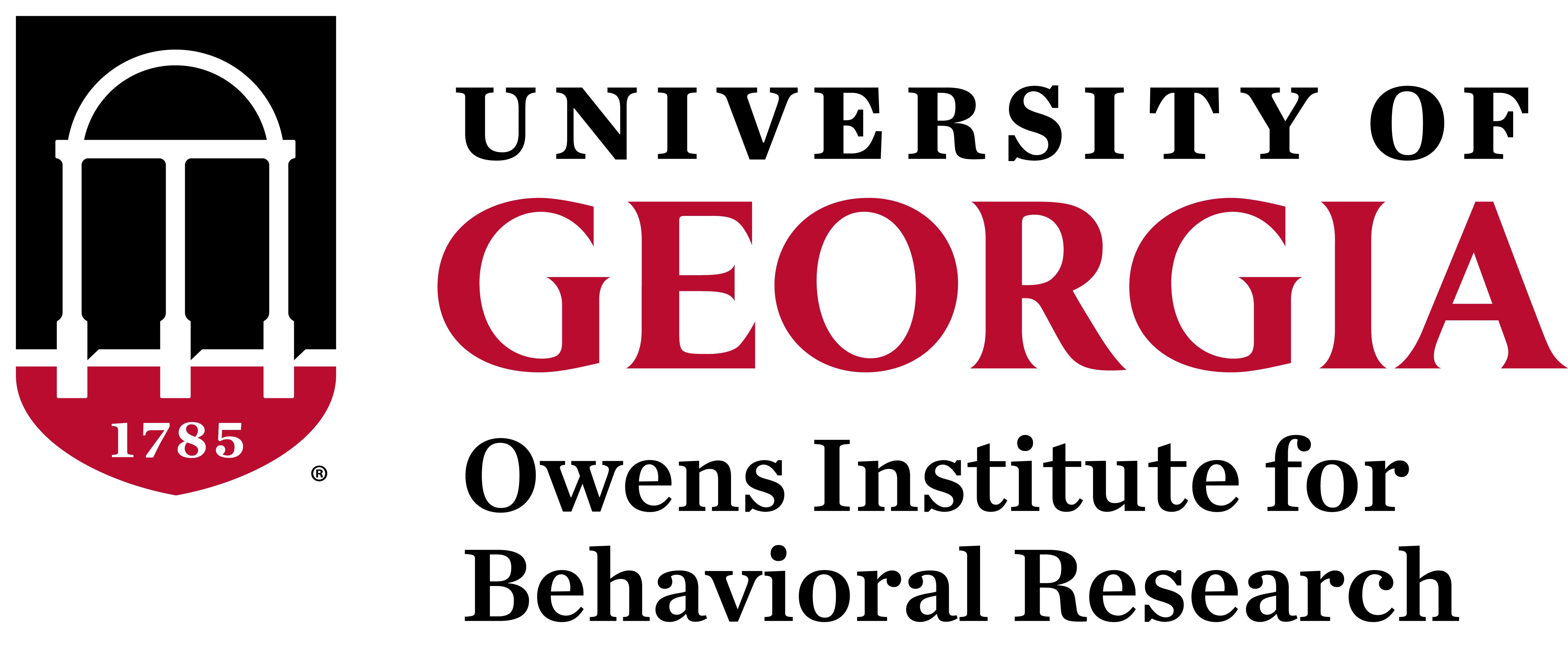OIBR Facts
What is the Owens Institute for Behavioral Research (OIBR)?
OIBR stimulates, supports, and sustains innovation and infrastructure in the Social and Behavioral Sciences. Our impact lies in the fact that we catalyze high-impact interdisciplinary research.
The Owens Institute for Behavioral Research facilitates scholarly inquiry and external funding in the social and behavioral sciences at the University of Georgia. We provide faculty mentoring, research administration services, and interdisciplinary networking opportunities, as well as advocate for social and behavioral science research.
What Do We Offer?
OIBR Grant Development Program: The OIBR Grant Development Program (GDP) fosters faculty career development and supports the UGA pipeline for future excellence by developing the skills faculty need to seek extramural funding, providing structured workshops and activities, and supporting pilot research designed to enhance future fundability. Faculty must apply and be accepted into the program. The goal of the grant development program is submission of an extramural grant through OIBR by the end of year two of the program.
Grants Administration Services: OIBR has staff experienced in pre-award and post-award services to assist with the complete life-cycle of research grants.
Pre-award: OIBR services include assistance with grant development such as helping the investigator integrate and develop research ideas to fall within both the institutional and sponsor guidelines, drafting a working budget template, providing example components, completing the transmittal information in the eResearch Portal, formatting and uploading components, and coordinating with subcontract sites. If requested by faculty and as time allows, OIBR’s Grants Coordinator will assist faculty with searching for funding opportunities to match their research interests.
Post-award: OIBR services include all aspects of grants management such as purchasing, setting up and processing payroll, paying out research incentives, processing reimbursements, monitoring grant budgets, processing sub-contract invoices and consulting agreements, assisting with submitting progress reports and no-costs extensions, and helping ensure compliance with UGA and external funding agencies’ requirements.
Who is Represented at OIBR?
Distinguished Scholars, Affiliates & Grant Development Program Participants from many different Colleges & Departments:
- Franklin College of Arts & Sciences (Psychology – Sociology – Communication Studies – Anthropology – Geography – Mathematics – Biochemistry & Molecular Biology – Cellular Biology – Genetics – Plant Biology – Statistics – Computer Science)
- College of Education (Educational Psychology – Communication Sciences & Special Education – Kinesiology- Counseling & Human Development – Career & Information Studies – Early Childhood Education – Math & Science Education – Language & Literacy Education)
- School of Social Work
- College of Family and Consumer Sciences (Human Development & Family Science – Foods & Nutrition – Financial Planning, Housing & Consumer Economics – Textile, Merchandising & Interiors)
- College of Public Health (Health Policy & Management – Health Promotion & Behavior – Epidemiology & Biostatistics)
- School of Public & International Affairs (Public Administration & Policy – International Affairs – Political Science)
- College of Pharmacy (Clinical & Administrative – Pharmaceutical Health Services, Outcomes & Policy)
- Grady College of Journalism & Mass Communication (Advertising – Journalism – Public Relations)
- Terry College of Business (Management – Economics – Management Information Systems)
- College of Environment + Design
- Warnell School of Forestry & Natural Resources (Animal Ecology – Spatial Ecology)
- Carl Vinson Institute of Government
- College of Agricultural & Environmental Sciences (Crop & Soil Sciences)
4 Centers of Excellence:
- Center for Family Research
- Center on Biological Embedding of Social Events and Relationships
- Center for Integrative Conservation Research
- Scientists Engaged in Education Research
6 Active Workgroups:
- Cognition and Neuroscience
- Relationship Science
- Computational Social Science
- Violence Workgroup
- Stress, Trauma, Adversity and Resilience
- Psychological Assessment
How is OIBR funded?
As a service unit within the Office of Research, OIBR’s entire operating budget comes directly from the Office of Research. Indirect cost return (F&A) is split according to home unit policies. OIBR does not retain any indirect cost return from grants administered through the Institute.
How Does Affiliation with OIBR Benefit Departments & Colleges?
Affiliation with OIBR benefits departments and colleges by (1) offering a formal mentoring program for faculty members, (2) organizing colloquia open to all university faculty, and (3) reducing departmental administrative burden through our comprehensive pre-award and post-award services. OIBR can also help departments and colleges with faculty recruitment and assist in the socialization of new faculty by offering a supportive intellectual environment for the pursuit of research. Indirect cost return (F&A) is split according to home unit policies. OIBR does not receive any collaborator contribution credit or indirect cost return for grants managed by the Institute.
How Does Affiliation with OIBR Benefit Faculty?
The multi-disciplinary collaboration and intellectual environment of OIBR has proven to be a rewarding professional experience for those affiliated with the institute and provides a platform for networking and research opportunities. Faculty who participate in our grant development program attend grant writing workshops and structured activities, can apply for funds to support pilot research to increase the likelihood of successful grant funding, and receive other grants specific support services. Faculty who choose to submit grants through OIBR will also benefit from our experienced pre-award and post-award staff and one-stop service model.
OIBR by the numbers over our fifty+ year history (FY 1970-2023):
- New proposals submitted: Over 1600 proposals totaling over a billion dollars
- New proposals funded: 517
- New dollars awarded: $316.6M
Questions?
Director: Jody Clay-Warner
jclayw@uga.edu (706.542.6094)
Associate Director: Jennifer McDowell
jemcd@uga.edu (706.542.7906)
Assistant Director: Kim Silvis Cherewick
ksilvis@uga.edu (706.542.6078)
